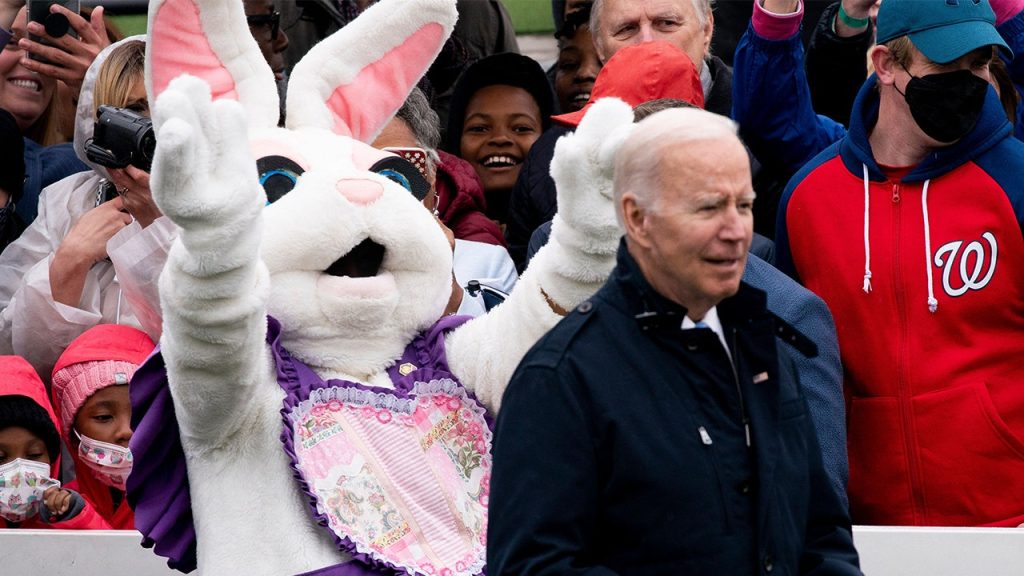President Joe Biden faced backlash on social media after designating Easter Sunday as the “Transgender Day of Visibility.” Many Christians, politicians, and commenters criticized the announcement from the White House, as Easter is considered the most important Christian holiday commemorating the resurrection of Jesus Christ. The White House statement emphasized honoring transgender Americans and promoting equality, but many felt that overshadowing Easter with the transgender visibility day was disrespectful to Christians.
Former presidential candidate Vivek Ramaswamy and Representative Alex Mooney were among those who pointed out the timing of the proclamation, as Easter Sunday falls on the same day as the Transgender Day of Visibility in 2024. The decision was seen as a direct assault on Christianity, with Tennessee Republican Rep. Diana Harshbarger calling it intentional and a blatant disregard for religious traditions. Conservative commentator Benny Johnson labeled it as a slap in the face to Christians in America, further fueling the backlash against Biden’s actions.
Critics have highlighted the inconsistency in Biden’s public image as a “devout Catholic” and his support for LGBTQ+ and abortion rights. The White House’s use of the term “devout Catholic” to describe Biden’s beliefs has been questioned, especially in light of his policies that conflict with teachings of the Catholic Church. A recent poll from Pew Research revealed that a majority of Americans do not perceive Biden as very religious, further undermining his claims of devoutness in the face of controversial decisions like proclaiming the Transgender Day of Visibility on Easter Sunday.
The clash between Biden’s portrayal as a devout Catholic and his support for progressive causes has been a recurring theme in his presidency. This latest controversy involving the Transgender Day of Visibility on Easter Sunday has reignited debates on the intersection of religion, politics, and social issues within Biden’s administration. The criticism from prominent figures and social media users reflects a deeper division in American society around issues of faith, identity, and inclusion, as people grapple with conflicting values and beliefs in a polarized political landscape.
The incident highlights the challenges faced by political leaders in navigating complex issues related to religion, identity, and human rights. Biden’s decision to recognize the Transgender Day of Visibility on Easter Sunday underscores the ongoing tensions between religious traditions and calls for inclusivity and equality. The backlash against the proclamation reveals the deep-seated divisions in American society over issues of faith, morality, and social justice, underscoring the need for respectful dialogue and understanding across different perspectives and beliefs.
Ultimately, the controversy surrounding Biden’s proclamation on Easter Sunday as the Transgender Day of Visibility reflects broader debates within society over the intersections of religion, politics, and social change. The clash between religious traditions and calls for social justice and equality underscores the complexities and challenges faced by leaders in addressing diverse and often conflicting interests and values. The incident serves as a reminder of the importance of respectful dialogue, understanding, and empathy in navigating complex issues and fostering a more inclusive and harmonious society for all.


